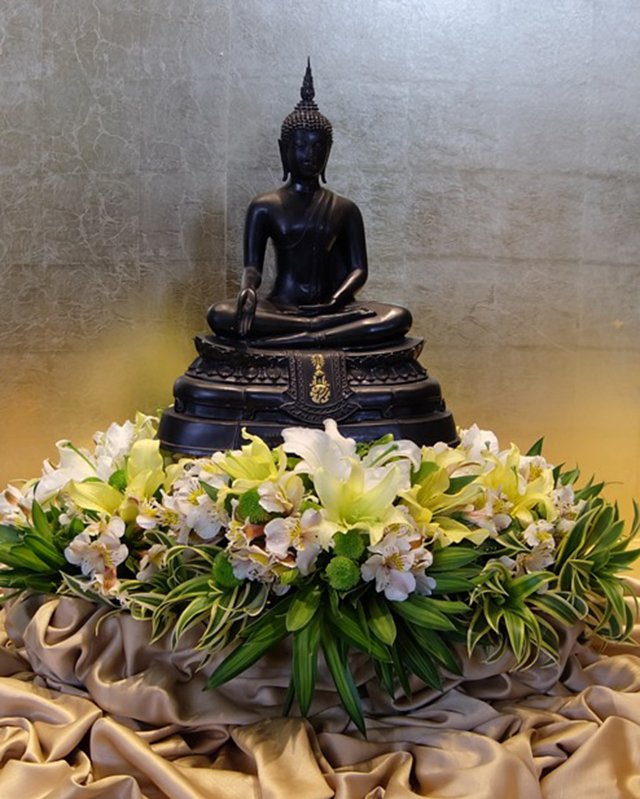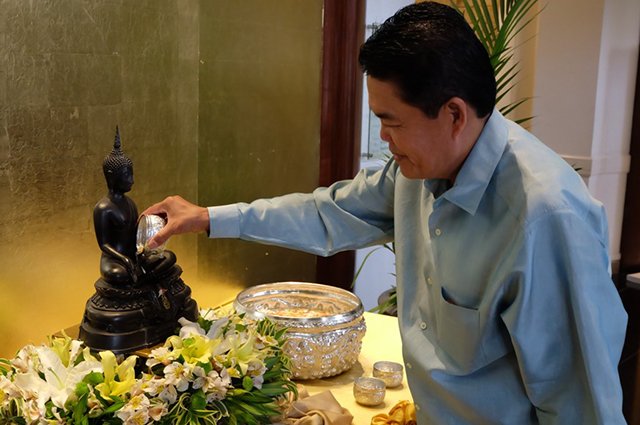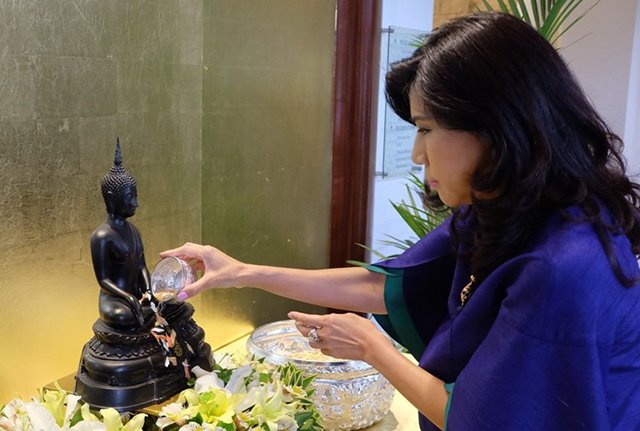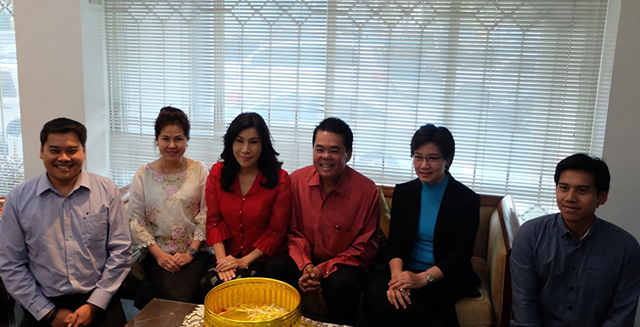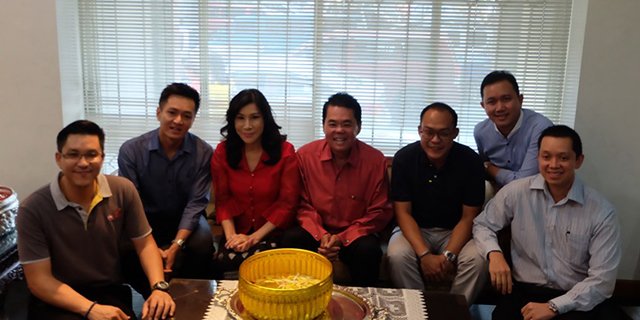What's New
Royal Thai Embassy in Manila pay tribute to His Majesty King Bhumibol Adulyadej of the Kingdom of Thailand
The Royal Thai Embassy in Manila held an activity to express Thai citizen’s allegiance and to pay tribute to His Majesty King Bhumibol Adulyadej of the Kingdom of Thailand. H.E. Thanatip Upatising, Ambassador of the Kingdom of Thailand to the Republic of the Philippines, led Embassy’s officials and their spouses as well as Team Thailand in the Philippines in pledging of allegiance and singing the Royal Anthem.






Royal Thai Government’s 500 Tons of Rice Donation for Typhoon Hagupit Rehabilitation
On 16 June 2015, H.E. Thanatip Upatising, Ambassador of Thailand to the Philippines, on behalf of the Royal Thai Government, attended the Turn-Over Ceremony to hand over the Royal Thai Government’s 500 tons of rice to Mr. Rodolfo Santos, Assistant Secretary for General Administration and Support Services Group, Department of Social Welfare and Development of the Philippines, as a representative of the Philippine Government, to assist the Philippines’ rehabilitation efforts in areas that were affected by Typhoon Hagupit (Ruby) last December.
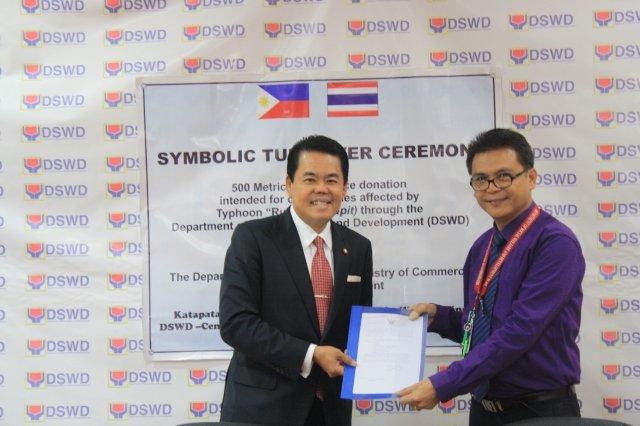
Scientific Symposium on “Current and Future Cancer Research: Liver and Lung Cancer
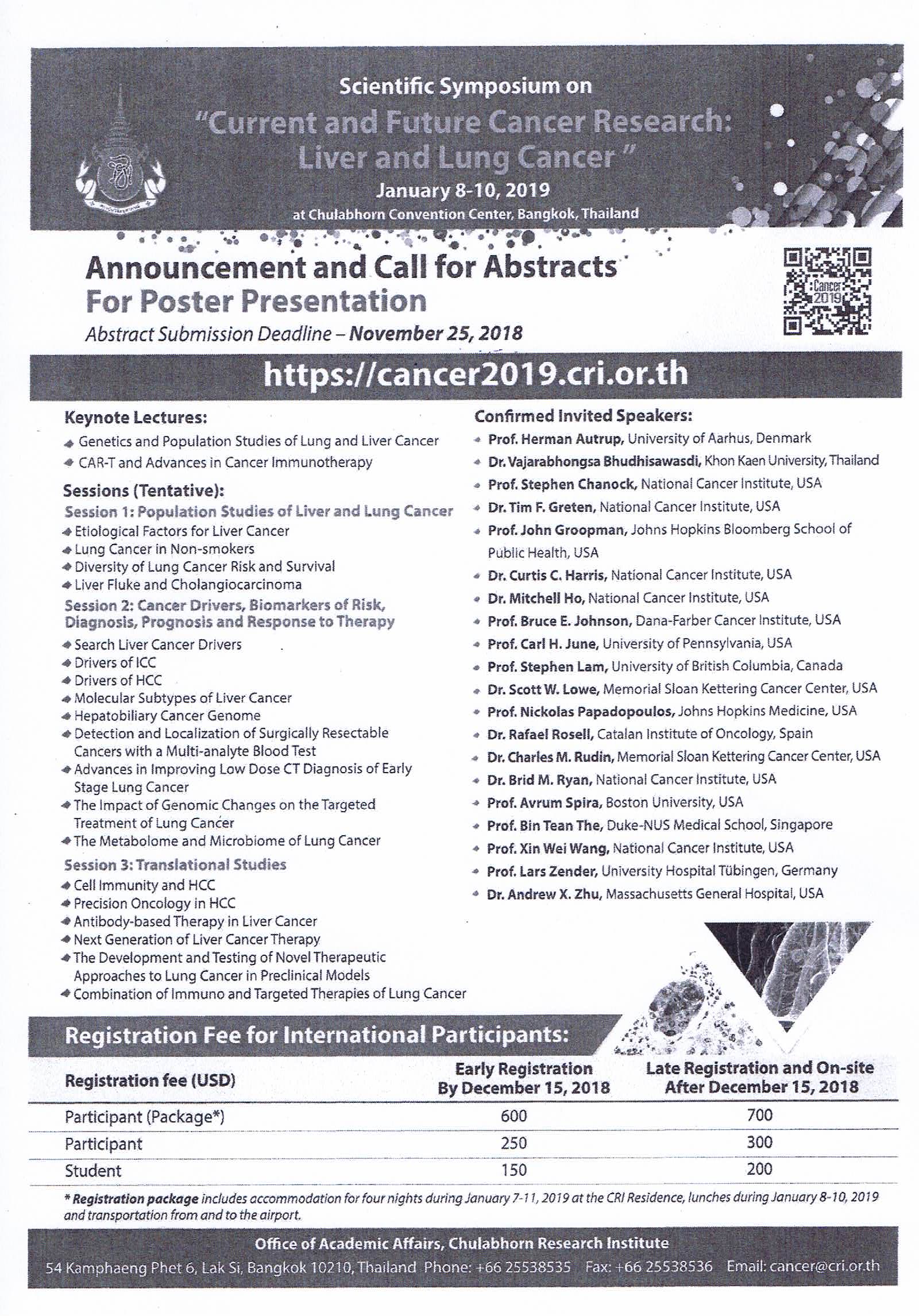
SCG Sharing the Dream Scholarship Turnover Ceremony
On 20 July 2015, His Excellency Thanatip Upatising, Ambassador of Thailand to the Philippines, attended the SCG Sharing the Dream Scholarship Turnover Ceremony for the School Year 2015-2016 at Asian Center Auditorium, University of the Philippines, Diliman, Quezon City.
SCG Sharing the Dream is part of SCG’s CSR projects, in partnership with Philippine Business for Social Progress (PBSP). This 8th year project has granted scholarships to high school students, near the areas of SCG’s operations, that have financial constraints but excellent academic performances. This year, the scholarships were awarded to 65 scholars from Batangas, 70 scholars from Bulacan and 65 scholars from Taquiq City, or a total of 200 scholars.
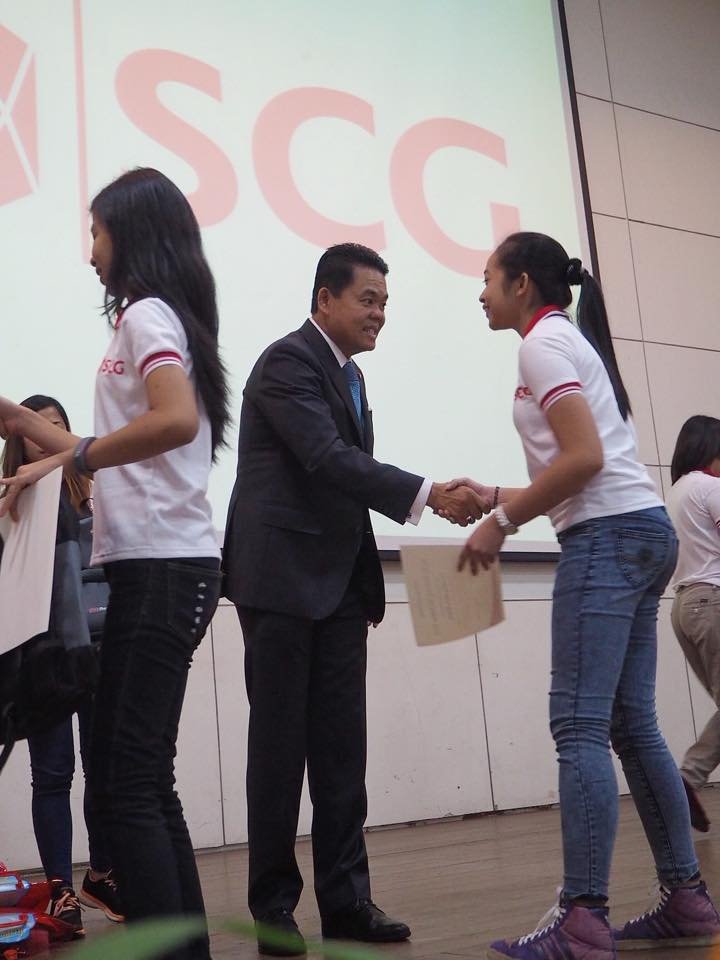

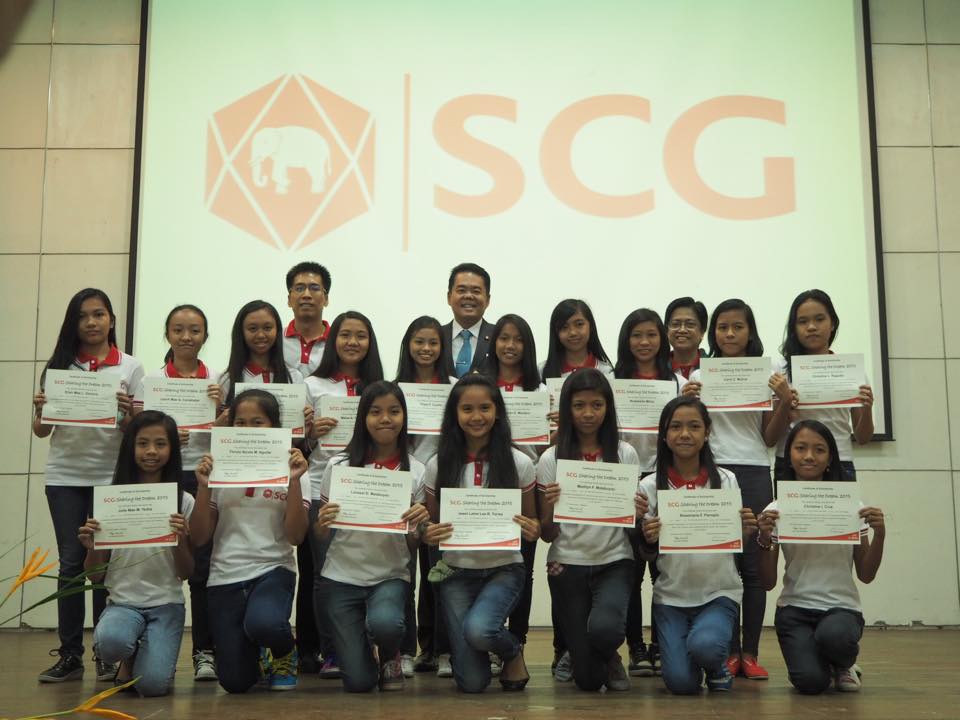
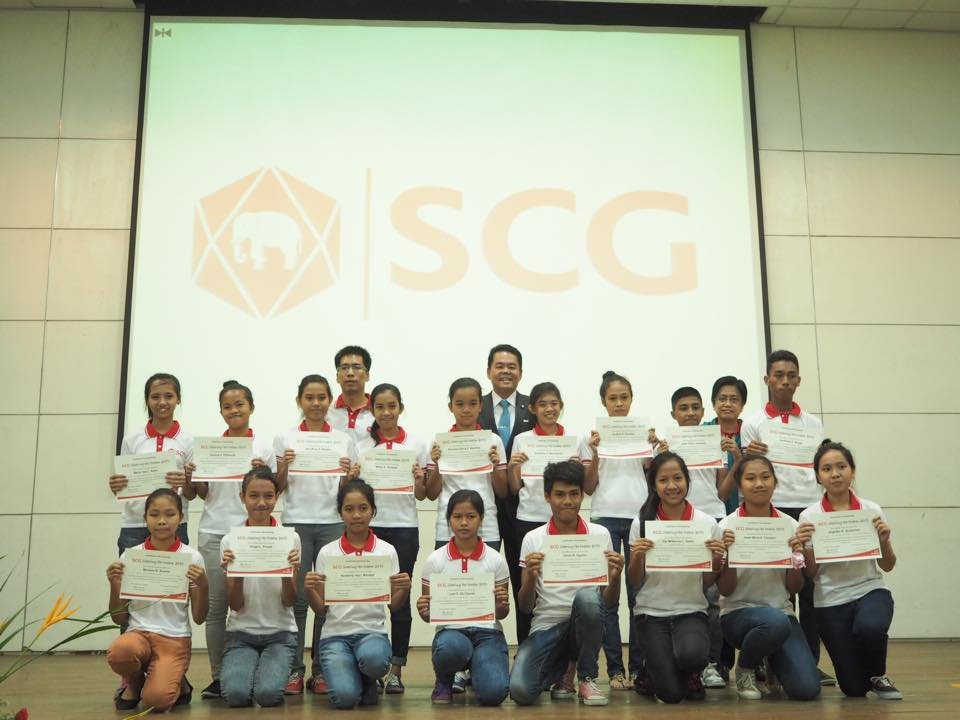
Songkran Festival and Thai New Year 2015
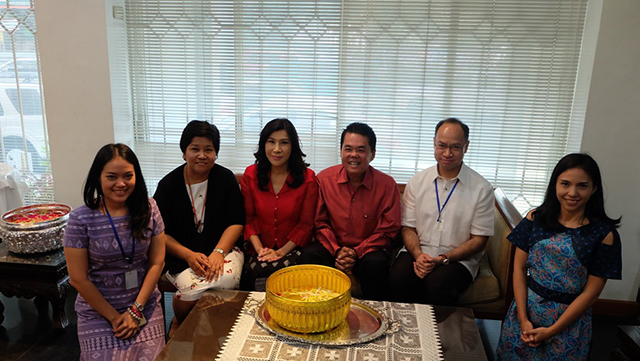
On the occasion of Songkran Festival and Thai New Year, the Royal Thai Embassy has invited officials, Embassy staffs, Team Thailand, Philippines-Thai Cultural Organization and AIT Alumni Association as well as the Executives and staffs of Dusit Thani Manila to join a water pouring ceremony onto the Buddha statue in order to seek blessing from Lord Buddha at Dusit Thani Manila on 11 April 2015. The same ceremony took place at the Embassy on 13 April 2015, in which officials, Embassy staffs and Team Thailand also performed a water pouring ceremony and received blessing from Ambassador Thanatip Upatising and his spouse, Mrs. Monthip Upatising. The Buddha statues were also on display at the Royal Thai Embassy until 17 April 2015 for the Thai community who resided in Manila to pour a water and seek blessing.
